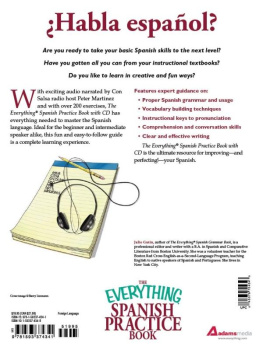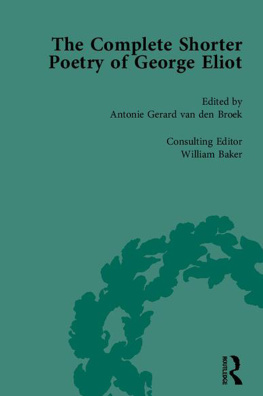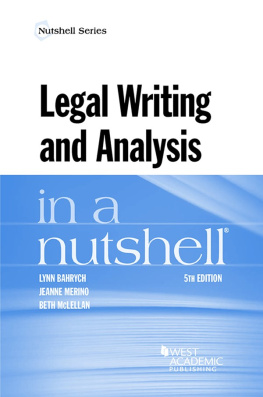POETRY INTO SONG
POETRY INTO SONG
Performance and Analysis of Lieder
DEBORAH STEIN
ROBERT SPILLMAN
Foreword by Elly Ameling
with Max Deen Larsen

To Laurel and George

Oxford University Press, Inc., publishes works
that further Oxford Universitys objective of excellence
in research, scholarship, and education.
Oxford New York
Auckland Cape Town Dar es Salaam Hong Kong Karachi
Kuala Lumpur Madrid Melbourne Mexico City Nairobi
New Delhi Shanghai Taipei Toronto
With offices in
Argentina Austria Brazil Chile Czech Republic France Greece
Guatemala Hungary Italy Japan Poland Portugal Singapore
South Korea Switzerland Thailand Turkey Ukraine Vietnam
Copyright 1996 by Oxford University Press, Inc.
Published by Oxford University Press, Inc.
198 Madison Avenue, New York, New York 10016
www.oup.com
First issued as an Oxford University Press, 2010
Oxford is a registered trademark of Oxford University Press.
All rights reserved. No part of this publication may be reproduced,
stored in a retrieval system, or transmitted, in any form or by any means,
electronic, mechanical, photocopying, recording, or otherwise,
without the prior permission of Oxford University Press.
Library of Congress Cataloging-in-Publication Data
Stein. Deborah J. (Deborah Jane)
Poetry into song : performance and analysis of lieder / Deborah
Stein and Robert Spillman
p. cm.
Includes scores for 17 songs.
Includes bibliographical references (p.) and index.
ISBN 978-0-19-975430-4
1. SongsAnalysis, appreciation. 2. SongsInterpretation
(Phrasing, dynamics. etc) 3. Songs19th centuryHistory and criticism.
4. Songs20th centuryHistory and criticism. I. Spillman, Robert. II. Title.
MT110.S74 1996
782.421680943dc20 95-5398
1 3 5 7 9 8 6 4 2
Printed in the United States of America
on acid-free paper
Acknowledgments
We have many to thank for assistance in completing this book. We thank Maribeth Anderson Payne for her interest and enthusiasm for the project and Soo Mee Kwon for her unflagging support and advice as the book went into publication. We are particularly grateful that Oxford University Press made the book financially accessible to those who would benefit from it the most.
There are many other individuals who contributed to the success of this project over the course of several years. For their enthusiasm and their many insights into Lieder and performance, we thank Carol and Brady Allred, Hali Fieldman, Cynthia Gonzales, Alan Gosman, Bryon Grohman, Steven Laitz, Ann-Marie Reynolds Laitz, Patrick McCreless, Mary Jane Loizou, Dan McMullin, Janet Schmalfeldt, Loraine Schneider, and Susan Youens. We are extremely grateful to David Lewin and Hali Fieldman, who read portions of the manuscript with great care and offered superb suggestions, and to Cynthia, Alan, Hali, Henny Bordwin, and Peggy Clarke for careful proofreading. Many colleagues sustained us through the final stages of this project; we extend special gratitude to Steven Bruns and Patrick Mason of the University of Colorado, Boulder and Lyle Davidson, Alan Fletcher, DAnna Fortunato, Helen Greenwald and Veronica Jochum of the New England Conversatory. To Henny Bordwin, Director of the American Schubert Institute in Boston, a special thanks for her generous assistance in ways too varied and numerous to mention here; the Institute has proven to be an immense resource for study of Lied performance and scholarship, and has contributed remarkably to the success of this project.
Others who have provided particular inspiration to the authors are a number of extraordinary scholars, musicians, and performers, including Arleen Auger, Robert Bailey, Dalton Baldwin, Wallace T. Berry, Edward T. Cone, David Epstein, Jan DeGaetani, Donald Grobe, Julius Huehn, Sergius Kagan, David B. Lewin, Barry McDaniel, Gerald Moore, Herman Reutter, Carl Schachter, Peter Schreier, Rita Streich, and Fritz Wunderlich.
Finally, a special thanks to Elly Ameling, whose consummate understanding and unparalleled performance of German Lieder was an abiding influence and inspiration to the authors and whose Foreword with Max Deen Larsen graces our work in a way that cannot be suitably expressed. In addition to her enthusiasm for this book, Elly Ameling has, through her recitals, recordings, and masterclasses, provided stunning insight and clarity into the works explored in this volume.
Contents
Revival of Interest in Antiquity and the
Middle Ages
Untransposed Chromatic Motives as Mediators and
Enharmonic Puns
Norms of the Phrase: Length, Development, and
Combination
CHAPTER TEN Different Settings of a Single Text:
Comparison of Compositional Style
Settings of Liebst du um Schnheit: Clara Schumann and
Gustav Mahler
APPENDIX II Glossary: Terminology for Poetry, Performance,
Analysis
Foreword
The irresistible beauty of the Lied has long cast its spell on listeners around the world. Those distinctive harmonies with which Franz Schubert and Hugo Wolf express intimate ideals and desires speak to people everywhere. No music pierces the hearts mysteries more deeply and no music is more deeply alive with verbal magic... a serious challenge indeed for performers and audiences who have little German. For it is the poetry of the Age of Goethe that has made the Lied possible, exquisite poetry that cannot be translated into other languages, but only into music.
The book you have in hand is about artistic transformation. It will guide you, and follow you, on your inner journeys as a performer, seeking to turn poems into songs. Here you enter a world where two plus two rarely equals four, a world teeming with latent voices waiting to be called into life, a world of vibrant tonal colors, a world where the very sounds of words must be meaning itself. More than a compendium of analytical concepts, this is a book that enables you to shape individual interpretations through personal encounter with a lively train of provocative questions and creative experiments. Providing abundant exercises for pianist and singer alike, Poetry into Song is an invitation to experience metamorphosis.
Elly Ameling
with
Dr. Max Deen Larsen
Franz Schubert-Institut
Baden bei Wien
INTRODUCTION
Preliminary Clarifications
Three different subjects are studied in this volume: poetry, musical performance, and music analysis. While our ultimate goal is to combine the three into a manifold understanding of German art song performance, we begin by separating the subjects from one another and examining each as a separate topic. This approach models how we believe performers need to study a Lied in performance preparation: they must study first the poetry, then the performance problems, and then each aspect of the musical structure in turn. By the end of the process, a recombination of the three topics will occur through polished performance, when singer and pianist convey their undertanding of the poetry and the music in the magical act of musical expression.
In These opening chapters will give readers the resources necessary for examining and understanding all of the verse set by the great Lied composers; moreover, they will provide the foundation for all discussions of poetry and related issues of text in this book.
Next page






